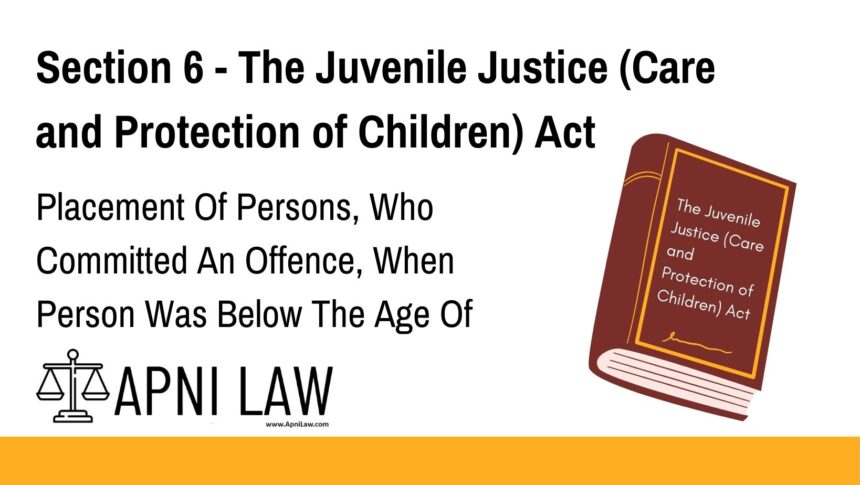Code
(1) Any person, who has completed eighteen years of age, and is apprehended for committing an offense when he was below the age of eighteen years, then, such person shall, subject to the provisions of this section, be treated as a child during the process of inquiry.
(2) The person referred to in sub-section (1), if not released on bail by the Board shall be placed in a place of safety during the process of inquiry.
(3) The person referred to in sub-section (1) shall be treated as per the procedure specified under the provisions of this Act.
Explanation
Section 6 addresses individuals who, despite having reached the age of 18, committed an offense when they were under 18 years old. The section ensures these individuals are treated in accordance with juvenile procedures, focusing on rehabilitation rather than punitive measures, even after they have crossed the threshold of adulthood.
The key points to note are:
-
Such individuals are treated as children for the purpose of the inquiry, ensuring that the juvenile justice system continues to guide the process.
-
If bail is denied, they will be placed in a place of safety to ensure their well-being during the process.
-
The individual will be subjected to the same procedures as outlined in the Juvenile Justice Act for children in conflict with the law, prioritizing rehabilitation over punishment.
Illustration
Example:
A 19-year-old individual is apprehended for committing a theft when he was 16.
-
Under Section 6, the individual will be treated as a child throughout the inquiry process, despite being above 18 at the time of the offense.
-
If bail is denied, the person will be placed in a place of safety for their protection.
-
The inquiry will proceed following the juvenile justice procedures outlined in the Act.
Common Questions and Answers
1. Can an individual who is over 18 but committed a crime when under 18 be treated as a child in the justice system?
-
Answer: Yes, Section 6 ensures that such individuals are treated as children during the inquiry process, as long as the offense occurred when they were under 18.
2. What happens if the individual is not granted bail during the inquiry?
-
Answer: The individual will be placed in a place of safety during the inquiry, ensuring their safety and rehabilitation.
3. How does this section align with the principles of the Juvenile Justice Act?
-
Answer: This section ensures the principles of rehabilitation and protection are upheld, even for individuals who are legally adults, but committed offenses as minors. It also prioritizes the individual’s best interests and safety during the legal process.
Conclusion
Section 6 of the Juvenile Justice Act reflects the Act’s child-centric approach, ensuring that individuals who committed offenses as minors, but have reached adulthood, are still treated with care and consideration within the juvenile justice framework. By treating them as children during the inquiry process, it upholds the core principles of the Act, focusing on rehabilitation and reformation rather than punishment. This ensures that even in adulthood, the individual is not penalized for past mistakes made as a child, promoting a second chance for their integration into society.








